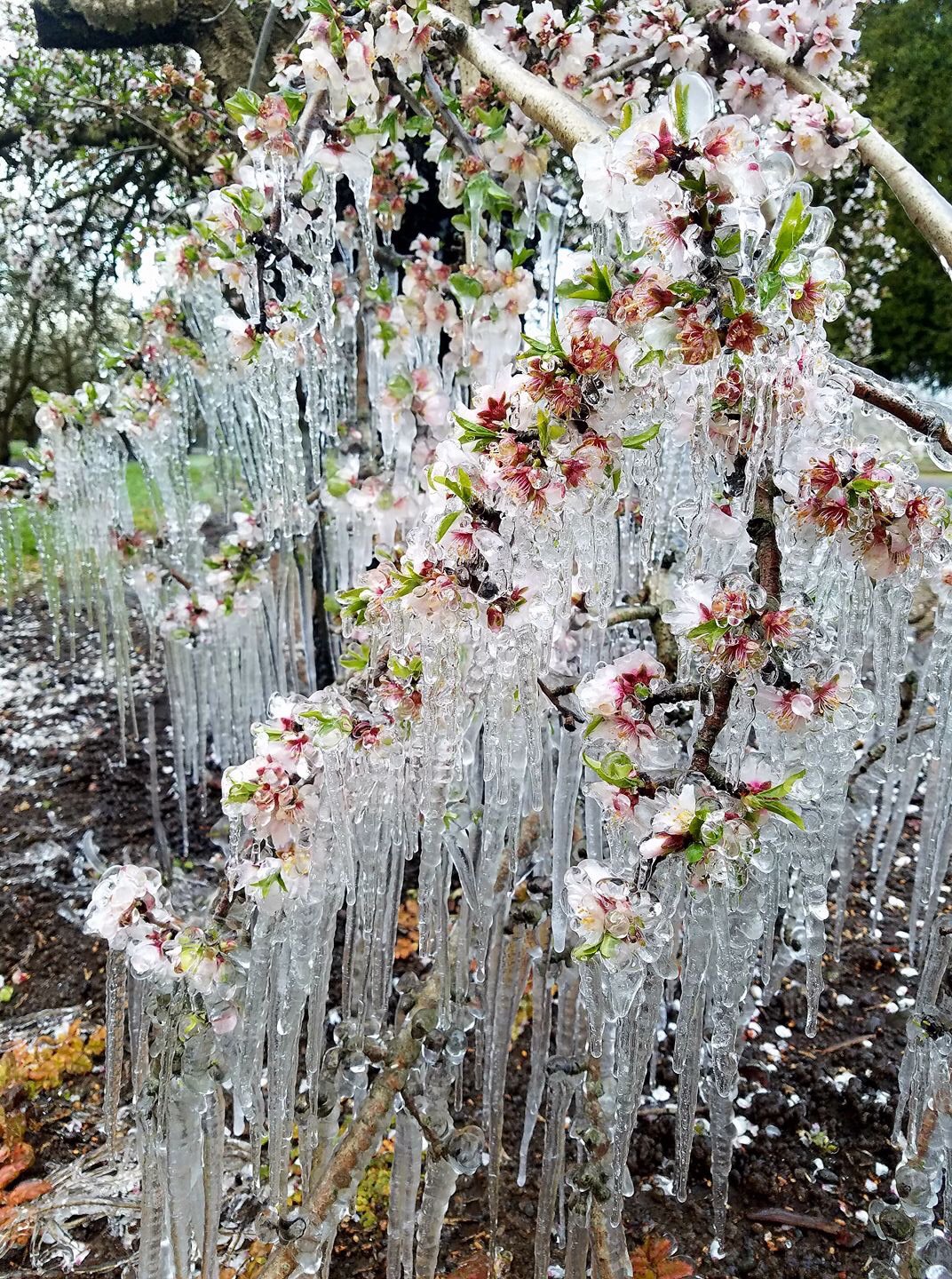Freezing temperatures have dealt a devastating blow to the fruit harvest in Czechia, with estimated damages surpassing 1 billion Czech crowns (40 million euros). Horticulturists report that the majority of fruit trees across the country have been damaged, resulting in a nearly complete loss of the harvest. Damages in Moravia are estimated at around 50%, and the weather conditions could worsen the situation.
To aid affected fruit growers, the Ministry of Agriculture plans to initiate a relief program amounting to 70-100 million Czech crowns (EUR 2.8 million - 4 million). Minister Marek Vyborny and Martin Ludvik, Chairman of the Fruit Growers Union, announced this initiative in Daminěves, Melnik region. They also highlighted potential price increases for fruits and vegetables, depending on harvests in other European countries.
This year's damage is considered one of the most severe in the last century, exacerbated by unusually warm weather preceding the frosts, accelerating flowering and fruit growth. Approximately 100,000 tons of fruit have been lost, leaving growers facing significant financial losses and uncertain futures.
Agronomist Pavel Kasparek emphasized the dire situation, stating a year and a half of expenses without income lies ahead for growers. Unlike other businesses, fruit growers cannot insure against frost risks, making their predicament even more challenging.
In response, the government is considering emergency aid and loans to support affected growers and ensure their survival until the next harvest season. However, with climate change likely to bring more frequent weather fluctuations, long-term adaptation strategies for Czech agriculture are crucial.
The crisis program for agricultural emergencies, established in 2016, will be activated to assist affected farmers, building on experiences of support during similar crises.
Small fruit producers, such as strawberry growers, were also affected by the frost. There, the damage will amount to tens of percent, the Minister of Agriculture added. And in the vineyards in the Melnik area, the damage is 100%.
Hungarian strawberry cultivation
In Hungary, strawberry cultivation is underway with the initial harvests already taking place in heated and unheated foil tents. The National Chamber of Agriculture and the Hungarian Vegetable and Fruit Trade Association (FruitVeB) project a balanced yield for the current year.
The season, which began in early April with strawberries from heated foil tents, progresses with those grown in unheated foils and is expected to extend to open-field plantations by late April or early May, weather permitting.
Despite minor frost damage and a delay in maturation due to recent cooler temperatures, the outlook remains optimistic with a forecast of warmer, sunnier weather.
Poland, Italy, Germany and Holland
Cold nights and moderate flowering weather caused a lot of damage in the Polish fruit sector. Especially the night from April 22 to 23 was very cold with temperatures as low as -5 to -6°C on a large scale. The exact extent of the damage cannot yet be determined, but Miroslaw Maliszewski, president of the Polish Fruit Growers Association, speaks of millions of euros of damage in apples and cherries in particular.
Frost damage and adverse weather conditions with cold and hail are also coming in from northern Italy, and Germany. As in the Netherlands, in most places flowering was two weeks earlier than normal and the returning cold is causing a lot of damage.
Ukraine's harvest of early apples and stone fruits partly damaged
As a result of the latest frosts in Ukraine, the peak of which occurred on April 19-20 of this year, orchards of apples, pears and stone fruits were partially damaged, EastFruit analysts report. At the same time, according to local growers, the most damage to apple orchards was caused by unfavorable weather conditions in the Vinnytsia region, indeed where the main apple areas are concentrated.
Some farms reported possible losses of more than half of the future apple harvest, but in most cases, this only concerned early and medium apple varieties, such as Melbourne, Geneva, etc. Regarding winter apple varieties, growers were more restrained in their harvest forecasts and reported that they hoped that the frosts did not have a significant impact on the production outlook.
In other regions of Ukraine, minor frost damage on April 19-20 was also noted in the Chernivtsi, where local growers estimated losses of the future harvest of apples at 10-15%. In turn, fruit producers in other regions of the country reported no losses in the future apple harvest, and night temperatures there over the last weekend were not so critical. Farmers in the Mykolaiv region reported a possible loss of harvest of early varieties of sweet cherries, and growers in the Chernivtsi region fear that they will not harvest all the planned volumes of apricots.
Source - https://www.freshplaza.com













